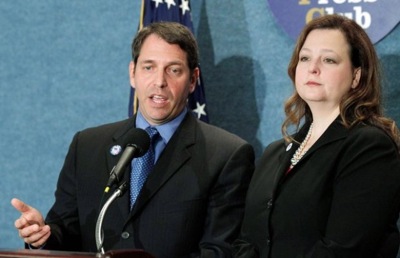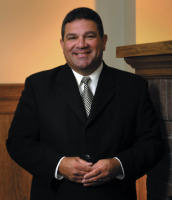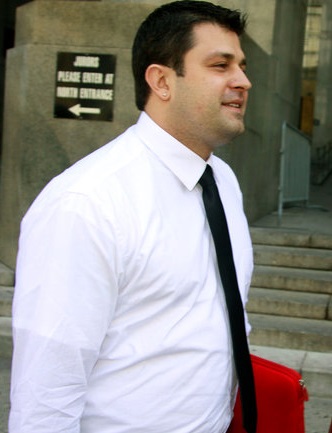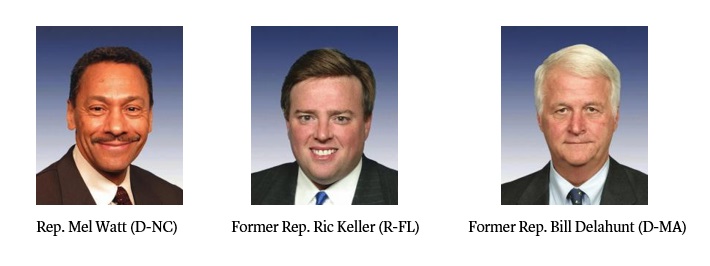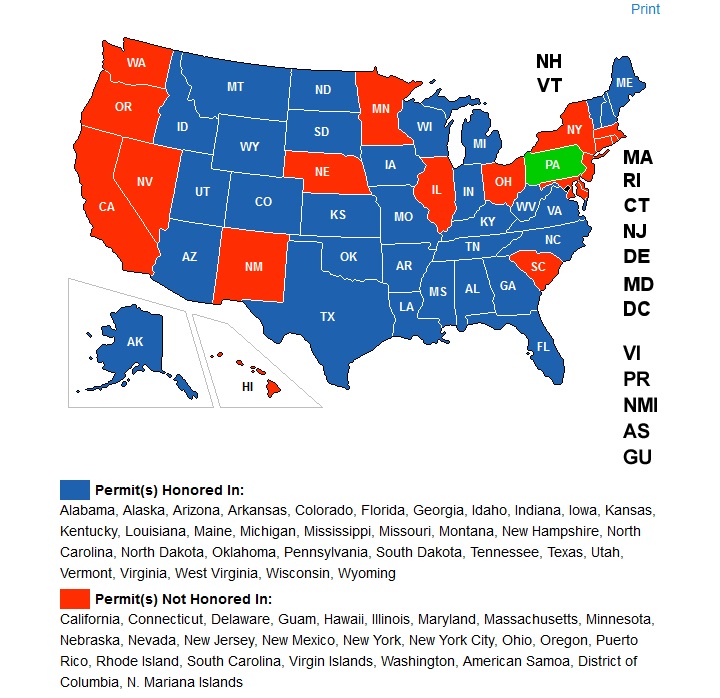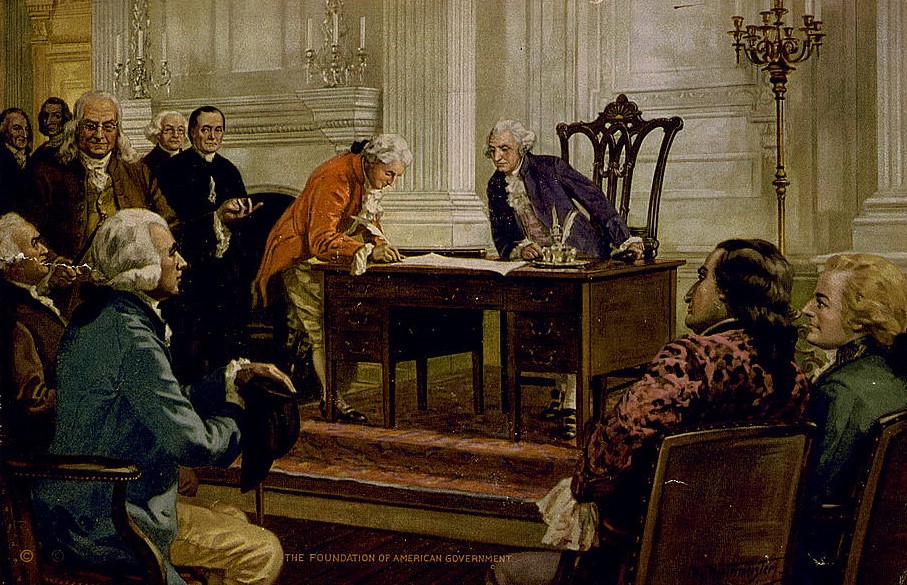One fairly common question we receive is “What do I have to do to get a Federal Concealed Carry Permit that is recognized in all states?” While a wise guy might have all sorts of fun, claiming the requirements include “clicking your heels three times, and saying ‘there’s no place like home,’” we understand that this situation casts us as the bearers of bad news.
While the Law Enforcement Officers Safety Act (“LEOSA”) permits qualified active and retired law enforcement officers to carry concealed firearms notwithstanding state and local laws, there is no method by which Joe Civilian can acquire a permit from the federal government to earn such a privilege. Unfortunately, there is currently no such thing as a Federal Concealed Carry Permit.
Be that as it may, this is by no means a silly question. In fact the Bureau of Alcohol, Tobacco, Firearms and Explosives seems to field this question often, listing it in its FAQ section.

The lack of uniform authority renders interstate travel difficult for a law abiding gun owner (LAGO). We discussed how to travel through states safely under the protection of federal laws in It’s the End of 926A as We Know It? How the Proposed Amendments Would Affect Travel. However, 926A does not provide LAGOs with the ability to travel to states with stringent firearm restrictions.
Sadly, there have been some highly publicized cases in which concealed carry holders became accidental criminals by crossing state lines.
Meredith Graves, a concealed carry holder from Tennessee, was arrested in New York City. Graves was a fourth year medical student visiting a 9/11 Memorial. During her visit, Graves had a firearm concealed in her handbag. She noticed a sign which purported to prohibit firearms, so she attempted to “check” her firearm with security. As her concealed carry permit is not recognized in New York, Graves was arrested and faced felony charges which carried a minimum of 3.5 years imprisonment. Mayor Bloomberg showed no desire to call it a misunderstanding, claiming “Let’s assume she didn’t get arrested for carrying a gun, she probably would have gotten arrested for the cocaine that was in her pocket.” The fact that the District Attorney confirmed that the “cocaine” was in fact aspirin, is of little significance. Ultimately, Graves accepted a plea deal to a misdemeanor with no jail time.
California resident Mark Meckler was arrested at La Guardia Airport when he attempted to check his firearm and ammunition. Meckler’s California concealed carry permit is not recognized in New York, and he was charged with “second degree criminal possession of a weapon, a Class C felony punishable by up to fifteen years in prison.” [See the District Attorney’s Press Release here]. In the end, Meckler pled guilty to disorderly conduct and paid a $250 fine.
Mark Benedetto, President of the University of Sioux Falls, was also detained overnight for attempting to check a handgun at La Guardia. While Mr. Benedetto held a concealed carry permit in South Dakota, it was not recognized in New York. It appears that no formal charges were brought against Mr. Benedetto, although he did spend the night in a Queens jail.
Ryan Jerome’s story is similar to that of Graves. While visiting the Empire State Building, he attempted to check his firearm, but instead was arrested and charged with a felony. Jerome held a concealed carry permit issued by Indiana, and mistakenly believed it would be recognized in New York. Like Graves, he eventually accepted a plea deal to a misdemeanor with no jail time.
Lastly, let’s not forget Shaneen Allen hailing from the great Commonwealth of Pennsylvania. The twenty-seven-year-old mother of two held a valid Pennsylvania License to Carry Firearms (LTCF). She had recently purchased a firearm to protect herself and her children after being the victim of two robberies in the preceding year. While driving in Atlantic County, New Jersey, she was pulled over for an alleged “unsafe lane change.” As is required in many states, and practiced by many as a courtesy even where not required, Ms. Allen proceeded to present the officer with her LTCF and inform him that she was both licensed and armed. Apparently, Ms. Allen was unaware that her LTCF is not recognized in New Jersey. While her possession would have been completely lawful within the Commonwealth, the same conduct is unlawful across the border in the state of New Jersey. Her possession of the firearm landed her charges for possession of a weapon and possession of hollow point rounds, which could have carried up to 11.5 years imprisonment. Initially, the prosecutor insisted that imprisonment was necessary, reportedly offering a plea bargain consisting of “five years in prison with no option of parole for 3.5 years.” She sat in jail for 40 days before being released on bail. In the end, the prosecutor ultimately approved Ms. Allen for a Pretrial Intervention Program ―in accordance with a clarification provided by the New Jersey Attorney General― which allowed her to avoid jail time.
Each of these instances have something in common. The defendant involved held a concealed carry permit from their respective state of residence. However, carrying the firearm into a jurisdiction which did not recognize their license subjected them to criminal penalties. While some of the above referenced individuals additionally violated local laws regarding magazines and ammunition (and these restrictions would likely still apply to those with a hypothetical Federal Concealed Carry Permit) there is no doubt that a uniform license to carry could alleviate some points of confusion.
A person need not intend to break the law to face criminal penalties for unlawful possession of firearms in most states. As a general rule, even an honest mistake of law does not serve as an affirmative defense. As they say “ignorance of the law is no excuse.”
For instance, under the New Jersey statute, “Any person who knowingly has in his possession any handgun, including any antique handgun, without first having obtained a permit to carry the same as provided in N.J.S.2C:58-4, is guilty of a crime of the second degree.” N.J.S.2C:39-5. The “knowingly” requirement simply refers to knowledge that one possesses the firearm, not knowledge as to whether or not doing so is illegal.
This is why it is extremely important for a LAGO to be certain about the law before traveling. Honest mistakes while carrying a firearm, even if you have no intention of harming anybody or breaking any laws, can be extremely costly as evidenced above. It is never safe to make any assumptions when it comes to the laws of firearms. As a LAGO, the law squarely places the responsibility on you to know, understand, and abide by the law, regardless of whether or not these laws seem fair, wise or even constitutional. Consider contacting an attorney who has experience with these laws before traveling to be certain you comply with local laws.
Bringing the discussion back to our initial topic, it seems that if a “Federal Concealed Carry Permit” were to exist, it could have saved the individuals above a great deal of time, stress, money and aggravation at the very least. Considering our most recent posts have dealt with powers afforded to the legislative branch [It’s the End? & Proposed Bill], we thought it would be fitting to consider whether Congress could, in theory, provide for federal concealed carry licensing.
We previously discussed how Congress has been afforded broad powers under the Commerce Clause. Especially today, as our society is increasingly mobile and long-distance face-to-face communication is readily available, interstate commerce is tied to many aspects of everyday life. Moreover, the portion of aspects affected seems to be growing significantly. Accordingly, under the Commerce Clause, Congress’ powers have become broader.
Much like it did in its initial enactment of the Gun Control Act, Congress relied on its powers under the Commerce Clause to enact LEOSA in 2004. [See Rep. Mike Honda, Home Builds and H.R. 376, 377, 378: Can Congress Do That?].
 Codified as 18 U.S.C. §§ 926B and 926C, LEOSA provides law enforcement officers and retired law enforcement officers who qualify the ability to legally carry firearms outside of their jurisdiction. While the law is lengthy, and those wishing to see it in full may do so here, it beings:
Codified as 18 U.S.C. §§ 926B and 926C, LEOSA provides law enforcement officers and retired law enforcement officers who qualify the ability to legally carry firearms outside of their jurisdiction. While the law is lengthy, and those wishing to see it in full may do so here, it beings:
Notwithstanding any other provision of the law of any State or any political subdivision thereof, an individual who is a qualified law enforcement officer and who is carrying the identification required by subsection (d) may carry a concealed firearm that has been shipped or transported in interstate or foreign commerce, subject to subsection (b).
18 U.S.C. § 926B (emphasis added).
Even though the Commerce Clause provides Congress with broad powers, the powers bestowed are not unlimited. As such, the authority of LEOSA is limited to “firearms that have been shipped or transported in interstate or foreign commerce.”
Some representatives did not believe that regulation of the use of handguns, merely because they had been involved in interstate or foreign commerce at some point in time, could fall within the authority of Congress under the Commerce Clause. Note the transcripts of the debates which took place:
Mr. KELLER: . . . Mr. Watt expressed some frustration about States’ rights, and let me say that sometimes the States do some things better and sometimes you need the Federal Government to intervene when you have an inconsistent patchwork. I live in Orlando, Florida. I would like to take my family on a car ride from Disney World to Disneyland in California. And I would imagine if I took the Federal highways, I would get there a couple of days before you would if you took the State highways, because there was an inconsistent patchwork.
Mr. WATT: Would the gentleman yield? It is quite obvious the gentleman doesn’t have much appreciation for the constitutional framework in which we are obligated to operate. Just because you might get there faster using an interstate highway than I would get there using State highways is no reason to tell the States that they can’t have State highways. That is just patently ridiculous.
Mr. KELLER: Reclaiming my time, you said I didn’t appreciate the Constitution in that analogy. And there is something in the Constitution that is called the commerce clause. And that is why we have the interstate highway system. I think it is a pretty good idea. I don’t think we want to rip that up in name of the argument that the commerce clause doesn’t mean anything.
Mr. WATT: Would the gentleman yield?
Mr. KELLER: No. I already yielded once.
. . .
Mr. WATT: I thought I had heard about the most expansive reading of the commerce clause that I could hear in justification of preempting State laws when we dealt with tort reform or some of the other issues. But this interpretation that this is somehow acceptable under the commerce clause, there is no trade. You know, a police officer puts a gun in his pocket and goes into another State that is protected under the commerce clause? Give me a break. That is even further beyond the pale than I have ever heard you try to justify as a justification for preempting State law. And this is the group that always said that they believed in States’ rights. When are you going to believe in States’ rights? When is anybody going to step up and say that States’ rights have some meaning in our federalist system? I mean, surely you all don’t believe this is justified under the commerce clause. I yield back.
. . .
Mr. DELAHUNT: Yes, I would suggest to my colleague from North Carolina that this would be permissible under the commerce clause.
Mr. WATT: Well, that is probably about as good an explanation of the commerce clause as we have heard earlier.
As interesting as it may be, the debate provides for few points which are legally significant. Similarly, there have been no legal challenges as to whether Congress had the authority to enact LEOSA under the Commerce Clause. In fact, Congress has amended LEOSA twice since its enactment without any obstacles with regards to its authority to do so.
Presumably, Congress could enact a similar law with regards to a federal concealed carry permit. The law would seemingly be limited to firearms that have been shipped or transported in interstate or foreign commerce. While this limitation might restrict the carry of your homemade 1911 [Rep. Mike Honda, Home Builds and H.R. 376, 377, 378: Can Congress Do That?] it would not pose an issue any more than those covered under LEOSA face at present.
So legally, it would be possible under the Commerce Clause to create a federal concealed carry permit. Whether it is likely from a practical standpoint is an entirely different matter. If the federal government created a federal concealed carry permit, who would be the issuing authority? As it is, federal agencies have fewer resources than necessary to efficiently fulfill their obligations (just look at BATFE NFA Form 4 wait times). Perhaps the consumer could bear the burden, paying whatever it takes to fill the resource void.
Another alternative to the “Federal Concealed Carry Permit” would a be a law, similar to LEOSA, requiring state and local governments to recognize every valid concealed carry permit issued within the United States. With such a law in effect, a valid Pennsylvania License to Carry Firearms would be recognized in any and all jurisdictions within the United States. At the moment, 18 states and Washington D.C. do not recognize our state’s LTCF. Of those jurisdictions, eight are practically neighbors. Such federal recognition would alleviate the need to avoid New York, New Jersey, Maryland, or other places where your LTCF isn’t worth the paper it’s printed on.
While each state presently has a procedure in place to obtain some form of a concealed carry permit, some “may issue” states grant the permit quite sparingly. Some “shall issue” states have very few requirements, and grant permits very liberally. Some states do not even require a permit to carry concealed. Most “unrestricted” states still have a process by which to obtain a concealed carry permit. Vermont does not, but many of its residents currently take advantage of non-resident permits from others states for reciprocity purposes. As a result, a federal law mandating recognition could afford protection for residents of each state.
Could this be covered under the Commerce Clause? One would have to think so, considering it resembles LEOSA even more closely than a separate Federal Concealed Carry Permit. Today, §926b reads:
“Notwithstanding any other provision of the law of any State or any political subdivision thereof, an individual who is a qualified law enforcement officer and who is carrying the identification required by subsection (d) may carry a concealed firearm that has been shipped or transported in interstate or foreign commerce . . . .”
The hypothetical law could read:
“Notwithstanding any other provision of the law of any State or any political subdivision thereof, an individual who is licensed to carry a concealed firearm in any state, and who is carrying the identification required by this statute (perhaps the concealed carry license itself and a driver’s license) may carry a concealed firearm that has been shipped or transported in interstate or foreign commerce . . . .”
Each “law” regulates the firearms themselves as products which have moved in interstate or foreign commerce. If the powers of the Commerce Clause are sufficient for one, they should be sufficient for both.
What about the Full Faith and Credit Clause? Article IV Section I of the United States Constitution reads: “Full faith and credit shall be given in each state to the public acts, records, and judicial proceedings of every other state. And the Congress may by general laws prescribe the manner in which such acts, records, and proceedings shall be proved, and the effect thereof.” Generally, this is applied to out-of-state judgments, and prevents individuals from re-litigating an issue in State “B” simply because they didn’t like the outcome in State “A.” In order to have this preclusive effect, the original court must have had jurisdiction over the parties and the subject matter, the judgment must have been on the merits, and the judgment must have been final. Could this principle, rooted in a guarantee by the United States Constitution, be applied to concealed carry licenses?
 Provided the courts’ most recent interpretations of the Full Faith and Credit Clause, no valid claim seems to exist. As of late, the Full Faith and Credit Clause has been analyzed primarily in the context of family law. Recently, the Fifth Circuit determined that Louisiana did not have to issue new birth certificates to unmarried adoptive parents, even if a valid adoption took place in another state. Adar v. Smith 639 F.3d 146 (2011). Quoting Supreme Court authority, the court noted “The Full Faith and Credit Clause does not compel ‘a state to substitute the statutes of other states for its own statutes dealing with a subject matter concerning which it is competent to legislate.’” Sun Oil Co. v. Wortman, 486 U.S. 717, 722 (1988) (quoting Pac. Emp’rs Ins. Co. v. Indus. Accident Comm’n, 306 U.S. 493, 501(1939)). The Seventh Circuit has further interpreted that the Full Faith and Credit Clause’s purpose is “to preclude the same matters being relitigated in different states as recalcitrant parties evade unfavorable judgments by moving elsewhere. It was never intended to allow one state to dictate the manner in which another state protects its populace.” Rosin v. Monken, 599 F.3d 574 (7th Cir. 2010).
Provided the courts’ most recent interpretations of the Full Faith and Credit Clause, no valid claim seems to exist. As of late, the Full Faith and Credit Clause has been analyzed primarily in the context of family law. Recently, the Fifth Circuit determined that Louisiana did not have to issue new birth certificates to unmarried adoptive parents, even if a valid adoption took place in another state. Adar v. Smith 639 F.3d 146 (2011). Quoting Supreme Court authority, the court noted “The Full Faith and Credit Clause does not compel ‘a state to substitute the statutes of other states for its own statutes dealing with a subject matter concerning which it is competent to legislate.’” Sun Oil Co. v. Wortman, 486 U.S. 717, 722 (1988) (quoting Pac. Emp’rs Ins. Co. v. Indus. Accident Comm’n, 306 U.S. 493, 501(1939)). The Seventh Circuit has further interpreted that the Full Faith and Credit Clause’s purpose is “to preclude the same matters being relitigated in different states as recalcitrant parties evade unfavorable judgments by moving elsewhere. It was never intended to allow one state to dictate the manner in which another state protects its populace.” Rosin v. Monken, 599 F.3d 574 (7th Cir. 2010).
Judging by the language used, it seems that a similar rationale could be offered to strike down a Full Faith and Credit arguments in support of concealed carry permit recognition. As such, it appears that any uniform reform must come from Congress, rather than a challenge brought in the judicial branch.
As of right now, many states recognize the concealed carry permits of other states even though it is not required by federal law. Many LAGOs acquire non-resident permits from other states in order to expand the territory in which they may travel while armed. Some non-resident permits are recognized by a great deal of states. For instance, a non-resident Utah Concealed Firearm Permit is currently recognized in 31 states. (For more information on how to obtain a Utah CFP through U.S. Law Shield, find upcoming courses here).
So in response to that famous question, the federal government does not currently issue a concealed carry permit. Further, the Full Faith and Credit Clause does not mandate other states to recognize the concealed carry permits of other states. However, as presently interpreted, the Commerce Clause does provide Congress with the authority necessary to either create a Federal Concealed Carry Permit, or mandate states to recognize those of other states.
In the past, several bills have been introduced which would mandate nationwide recognition of concealed carry permits. It is expected that Congress will see a similar bill proposed this year. Armed with the authority to do so, it will be interesting to see whether Congress enacts such a law this time around.
For more information about Pennsylvania’s License to Carry Firearms, see:
Can I get a license to carry a concealed firearm in Pennsylvania?
The modern history of Pennsylvania Concealed Carry: What makes Pennsylvania a “Shall Issue” state?


